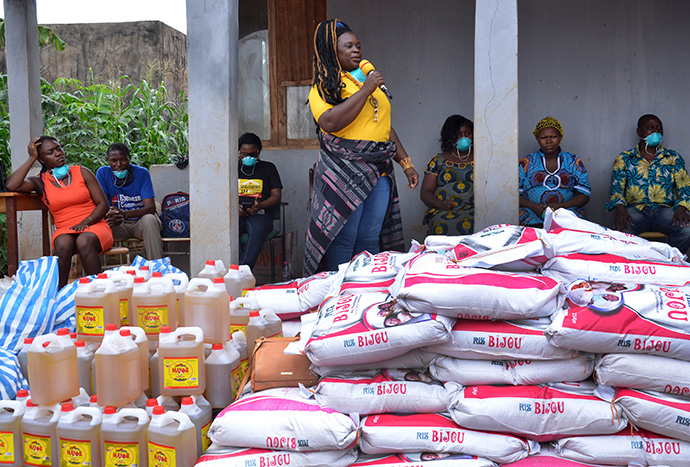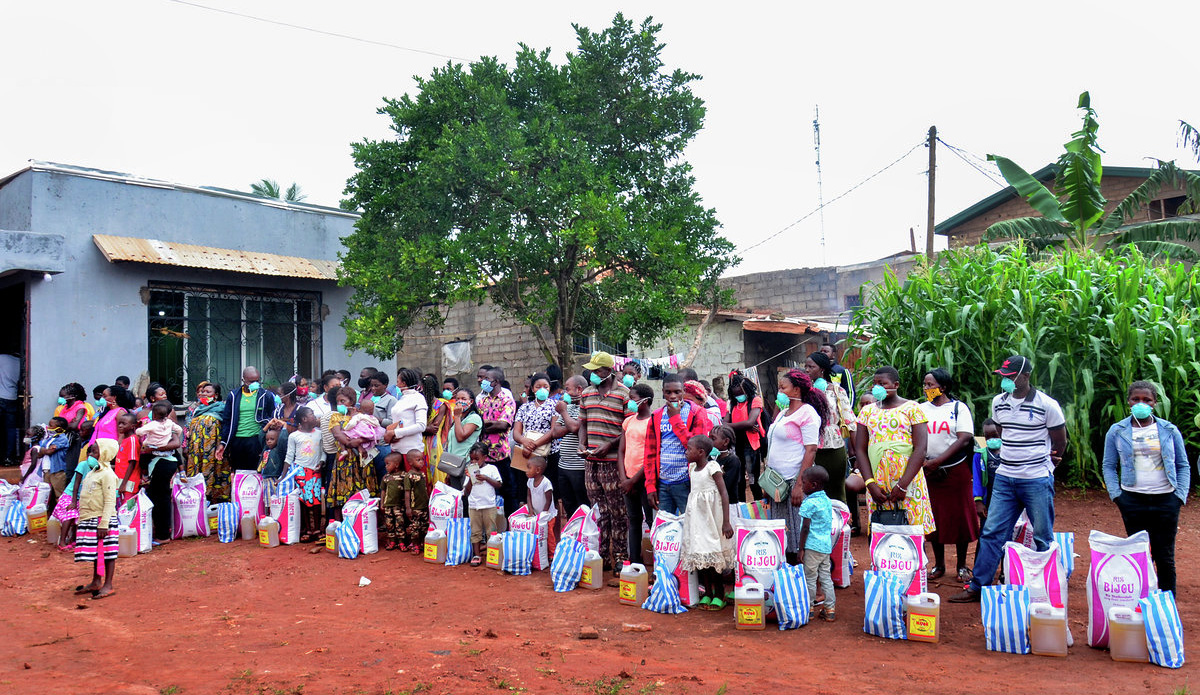Insecurity in Cameroon and the COVID-19 pandemic have worsened the livelihood of internally displaced people in the region.
The United Methodist Church in Cameroon, with help from the United Methodist Committee on Relief, has provided food and other aid to those struggling. The distribution took place June 29 at Ebenezer Community United Methodist Church in Yaounde.
“The beneficiaries are victims of the Anglophone crisis and the COVID-19 situation who need food relief within a considerable time for them to recover,” says the Rev. Ndobe Ebenezer Mosima, pastor of Ebenezer Community United Methodist Church.
According to United Nations estimates, there are more than 437,000 displaced people in Cameroon due to ongoing violence in the country. Most of those fleeing conflict areas are women and children who face “grave situations,” said Babar Baloch a spokesperson for UNHCR, the U.N. Refugee Agency.
“Having fled with very little, they are arriving in impoverished host communities where food supplies are strained and with few facilities for health, education, water and sanitation.”

Neba Rachel, a beneficiary of the aid, said this crisis has made it difficult for her to meet basic needs.
“It left me with no option but to use my capital for feeding, instead of doing my petit trade (small business) to raise income and other needs. COVID-19 has aggravated the whole situation. Thanks to the church and UMCOR, the children will not starve again,” Neba said.
How to help
Cameroon has 15,173 confirmed COVID-19 cases and 359 deaths, according to the most recent Johns Hopkins University data.
“This is the church’s way of helping the government deal with the coronavirus pandemic. The rice and oil items will help our people mitigate the economic challenges they are presently facing,” said Ntube Beatrice Diffang, women’s coordinator for the United Methodist Women Association in Cameroon.
The $7,320 Sheltering in Love grant — from the UMCOR COVID-19 Relief Fund — reached 1,000 people in the Yaoundé V Health District. Fifty families (approximately 500 people) directly benefited from emergency food supplies and an additional 200 received hygiene and COVID-19 protective kits. The beneficiaries were selected based on their vulnerability, loss of livelihood and displacement.
“This pandemic has brought untold suffering on our people, especially the rural women. The intervention of UMCOR is very timely,” Diffang said.
UMCOR and its parent agency, the United Methodist Board of Global Ministries, has distributed 146 grants worldwide to help communities cope with the COVID-19 pandemic, as well as 32 solidarity grants. That brings the total amount awarded as of July 1 to $1.56 million.
Addressing food insecurity
Scholastica Chenui, another beneficiary of the grant in Cameroon, said she hopes for a better life and plans to share the food with others.
“Our house was completely burnt down. We sleep on plantain leaves in the bush and covered with loincloths for months before my husband, kids and I relocated to Yaounde, with a cousin's help. This food will reach my cousins, who are also internally displaced persons in other places,” she said.
The Rev. Ekoka Molindo, director of mission for The United Methodist Church in Cameroon, advised the internally displaced to live in peaceful coexistence with their neighbors.
“We are ready to assist in any little way. The church doors are open for all IDP residents in Douala and Yaounde and where the UMC is present,” he said via phone from his home.
Ndobe is a communicator for the United Methodist Women Association Cameroon.
Like what you're reading? Support the ministry of UM News! Your support ensures the latest denominational news, dynamic stories and informative articles will continue to connect our global community. Make a tax-deductible donation at ResourceUMC.org/GiveUMCom.




